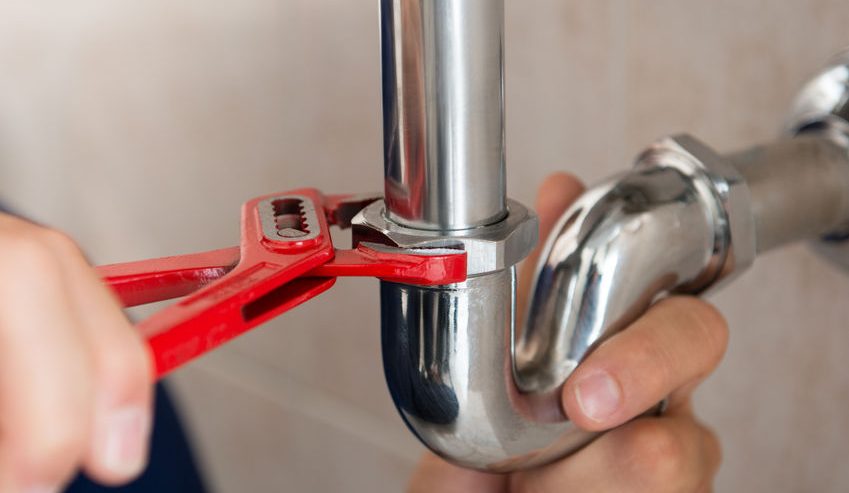Understanding Water Leakage
Water leakage is one of the most common yet overlooked problems in residential and commercial properties. It occurs when water escapes from its intended path, often due to damaged pipes, poor sealing, or aging infrastructure. Detecting water leakage early is critical because even minor leaks can lead to extensive damage over time. Homeowners may notice signs like damp walls, peeling paint, water stains, or musty odors, which indicate moisture accumulation. Ignoring these warning signs can result in mold growth, structural weakening, and increased utility bills. Water leakage may happen slowly over months or appear suddenly due to a burst pipe or roof damage. Understanding the causes and early signs is the first step in preventing costly repairs.
Common Areas Prone to Water Leakage
Water leakage can occur anywhere in a building, but certain areas are more vulnerable. Bathrooms and kitchens are prime locations because of frequent water usage and extensive plumbing. Leaks can develop from faucets, showerheads, pipes, and sink connections, often unnoticed until damage becomes significant. Roofs and ceilings are also susceptible, particularly where shingles, flashing, or gutters are damaged. Basements and foundations are common areas for water intrusion, with cracks allowing groundwater to seep in. Windows and doors may contribute to leakage if seals, weatherstripping, or caulking deteriorate. Regular inspections of these areas can save property owners significant time and money. Maintaining these vulnerable spots helps protect the overall structural integrity of a property.
Dangers of Ignoring Water Leakage
Neglecting water leakage can lead to serious consequences. Structural damage is one of the most immediate risks, as prolonged exposure to water weakens walls, floors, and ceilings. Mold and mildew growth can develop quickly in damp environments, causing health issues such as allergies, respiratory problems, and skin irritation. Electrical hazards may arise if water comes into contact with wiring, potentially creating fire risks. Additionally, even small leaks can drastically increase water bills due to wasted water over time. Water leakage can reduce the lifespan of building materials, resulting in more frequent renovations and repairs. Ignoring leaks can also affect property value, as prospective buyers often identify moisture damage during inspections. Proactive repair and maintenance are key to minimizing these risks.
Techniques and Methods for Water Leakage Repair
Repairing water leakage requires identifying the source and selecting the appropriate repair method. Pipe repair and replacement are common for leaks caused by corroded, cracked, or burst pipes. Roof leaks can be addressed through patching, sealing, or professional inspection to replace damaged shingles or flashing. Basement waterproofing may involve sealing cracks, installing drainage systems, or using sump pumps to redirect water away from the foundation. Leak detection technologies are now widely available, including thermal imaging cameras, moisture sensors, and acoustic detection tools that help pinpoint hidden leaks. Homeowners should choose methods that address both immediate issues and prevent future occurrences. Some repairs, such as minor pipe leaks or faucet replacements, can be handled by DIY enthusiasts with proper tools and guidance. Professional water leakage repair services are essential for complex problems or situations where structural safety is at risk.
DIY vs Professional Water Leakage Repair
Deciding between DIY fixes and professional services depends on the severity and location of the leak. Small leaks, such as dripping faucets or minor pipe cracks, can often be managed with basic plumbing tools and sealants. Essential tools for DIY repairs include pipe wrenches, sealant tapes, replacement washers, and pipe cutters. Homeowners attempting repairs should also be familiar with shutting off the main water supply to prevent further damage. Professional services, however, provide expertise, experience, and advanced equipment to address more serious water leakage problems. They can offer comprehensive inspections, identify hidden leaks, and implement long-lasting repair solutions. Costs may vary depending on the complexity, but professional repair reduces the risk of repeated problems. Hiring experts ensures compliance with building codes and protects property value.
Preventive Measures to Avoid Future Leaks
Prevention is always better than repair when it comes to water leakage. Regular plumbing inspections and maintenance can catch potential problems before they escalate. Gutter cleaning and roof upkeep prevent water from pooling and penetrating vulnerable areas. Installing water leak detectors and automatic shut-off valves adds an extra layer of protection. Proper sealing around windows, doors, and foundations helps prevent moisture intrusion from the exterior. Monitoring water pressure and avoiding abrupt temperature changes in pipes can reduce the risk of burst pipes. Landscaping near foundations should be graded to divert water away from the building. These measures not only protect the property but also extend the lifespan of plumbing and structural components.
FAQ
- How can I tell if I have a hidden water leak? Signs include unexplained high water bills, damp spots, mold growth, or unusual sounds in pipes. Professional leak detection may be required for hidden leaks behind walls or under floors.
- How much does water leakage repair usually cost? Costs vary depending on severity, location, and required repairs. Small DIY repairs may cost less than $100, while professional services for significant leaks can range from several hundred to thousands of dollars.
- Can small leaks cause major damage over time? Yes, even minor leaks can weaken structures, encourage mold growth, and increase water bills if not addressed promptly.
- What are the fastest ways to stop a leaking pipe? Turn off the main water supply, use temporary sealants or pipe clamps, and contact a professional plumber for permanent repair.
- How often should I inspect my home for water leaks? A visual inspection every few months is recommended, with a professional inspection annually to ensure all plumbing and structural components are secure.
Takeaway
Addressing water leakage promptly is essential to protect property, health, and finances. Identifying problem areas, performing timely repairs, and implementing preventive measures can prevent serious damage and reduce repair costs. Whether choosing DIY methods for minor leaks or professional water leakage repair services for complex issues, staying vigilant ensures long-term safety and comfort in any property.

